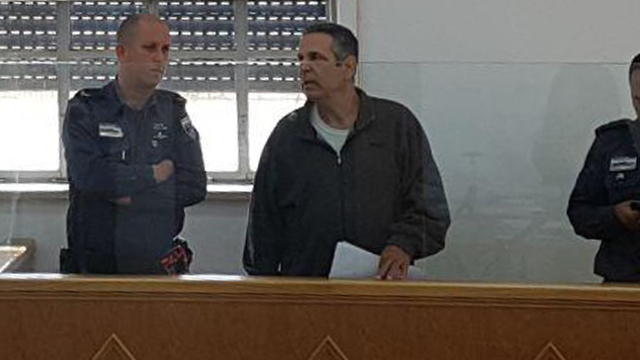Gonen Segev, the former energy and infrastructure minister, was accused of aiding Iran while he was living in Nigeria between 2012 and June 2018. He provided sensitive information such as locations of Israeli military sites and names of top national security officials.
63-year-old Segev signed a plea bargain deal with the state in the beginning of January 2019 and confessed to espionage, aiding an enemy in war time, as well as providing information to the enemy.
As part of the plea agreement, the charge of aiding an enemy in the war time—an offense defined as treason—was removed from the indictment by Judge Rafi Carmel.
In reaching the plea agreement, Segev’s defense team claimed the 11 year sentence is a fitting punishment for someone his age. In addition, similar punishments were imposed on those convicted of similar spying offenses. For instance, Ameer Makhoul—Palestinian who in 2010 was charged with spying for Hezbollah—was sentenced to 9 years in prison also as part of a plea deal.
The State Attorney's Office emphasized that one of the main reasons for reaching the plea agreement is the fact that while managing security cases there is a possible risk of sensitive intelligence information being leaked to a third party.
"Segev’s exposure, the investigation, the prosecution and finally today’s sentencing all represent a significant achievement for the Shin Bet, the Israel Police and the State Prosecutor's Office. Despite living in Africa, he was convicted and sentenced in Israel on charges of spying for Iran,” said one of the attorneys from the Jerusalem District Prosecutor's Office.
Segev's attorney Moshe Mazor called the prison sentence “proportionate to the circumstances of the affair." “The impression of the general public that the sentence is lenient stems from the fact that people are not exposed to the full extent of the case … He expressed sincere remorse for his actions," he said.
The former minister, who has been living in Nigeria in recent years where he worked as a doctor, tried to enter Equatorial Guinea in May 2018, where he was refused entry because of his criminal past and consequently transferred to Israel.
He was arrested and interrogated by the Shin Bet and the Israel Police after intelligence gathered on him raised the suspicion he was in contact with Iranian intelligence and aiding them in their activities against Israel.
The investigation found that Segev was recruited and was operated as an agent of the Iranian intelligence. He was first contacted by Iranian embassy officials in Nigeria in 2012, and at a later stage traveled to Iran twice for meetings with his handlers—while being fully aware they belonged to Iranian intelligence.
Segev did not deny the allegations leveled against him during his investigation, but claimed that he attempted to help Israel by “obtaining information.”




















